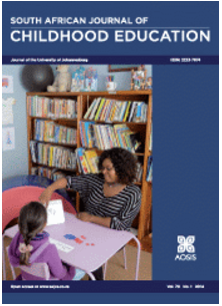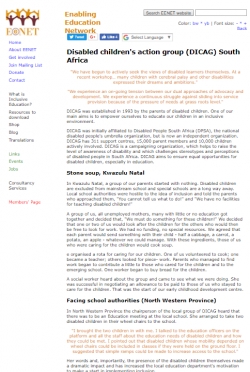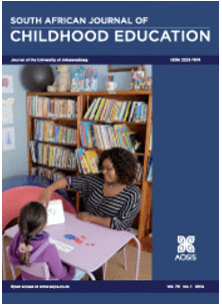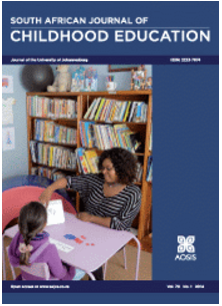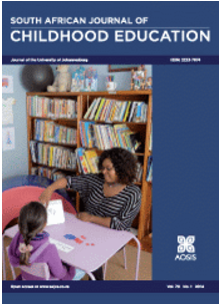Child: Care, Health and Development 33(3):230-235 Unmet health, welfare and educational needs of disabled children in an impoverished South African peri-urban township
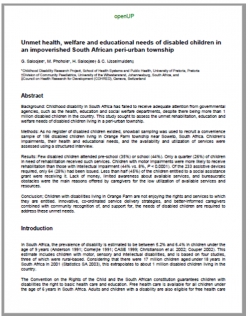
Type
E-Journal
ISSN
0305-1862
Category
ECCE, Foundation, Intermediate
[ Browse Items ]
Publication Year
2007
Publisher
Wiley Online, Hoboken, NJ, United States
URL
[ private ]
Pages
6 p.
Subject
Early childhood education, Early childhood development, ECCE services, Child disabilities, Disabled children, Children’s rights, Children’s health, Government role, Social services, Caregivers, Community role, South Africa
Tags
Abstract
Childhood disability in South Africa has failed to receive adequate attention from governmental agencies, such as the health, education and social welfare departments, despite there being more than 1 million disabled children in the country. This study sought to assess the unmet rehabilitation, education and welfare needs of disabled children living in a peri-urban township. As no register of disabled children existed, snowball sampling was used to recruit a convenience sample of 156 disabled children living in Orange Farm township near Soweto, South Africa. Children's impairments, their health and educational needs, and the availability and utilization of services were assessed using a structured interview. Few disabled children attended pre-school (35%) or school (44%). Only a quarter (26%) of children in need of rehabilitation received such services. Children with motor impairments were more likely to receive rehabilitation than those with intellectual impairment (44% vs. 8%, P < 0.0001). Of the 233 assistive devices required, only 64 (28%) had been issued. Less than half (45%) of the children entitled to a social assistance grant were receiving it. Lack of money, limited awareness about available services, and bureaucratic obstacles were the main reasons offered by caregivers for the low utilization of available services and resources. Children with disabilities living in Orange Farm are not enjoying the rights and services to which they are entitled. Innovative, co-ordinated service delivery strategies, and better-informed caregivers combined with community recognition of, and support for, the needs of disabled children are required to address these unmet needs.
Description
Article
Number of Copies
1
| Library | Accession No | Call No | Copy No | Edition | Location | Availability |
|---|---|---|---|---|---|---|
| Main | 193 | 1 | Yes |
